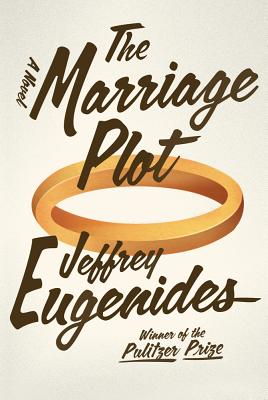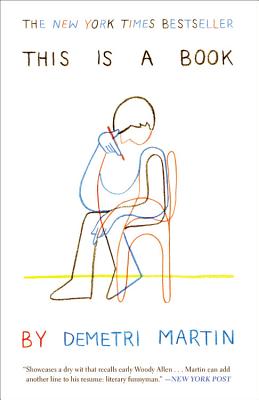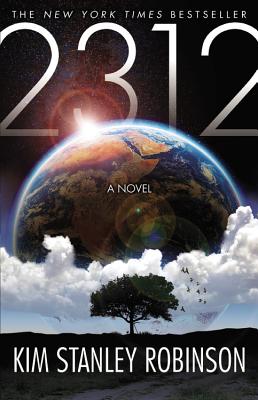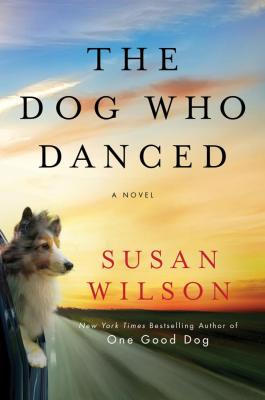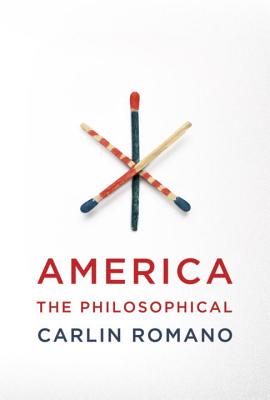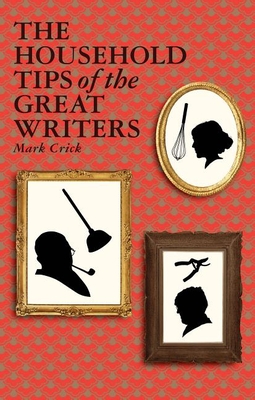Thoughts on books, reading and publishing from the staff and friends of the Tattered Cover Book Store.
Saturday, May 26, 2012
Friday, May 25, 2012
"This book embodies the essence of Demetri's comedy to perfection, which is a good thing since he wrote it. Silly but incredibly smart, it's exactly what puts me in awe of his work." -Will Ferrell
From the renowned comedian, creator and star of Comedy Central's Important Things with Demetri Martin comes the paperback debut of his bold, original, New York Times best-selling humor book.
This Is A Book was an instant and long-lasting New York Times best seller, and is the renowned comedian's hilarious foray into prose comedy. In these pages, Martin expands on the sensibility he's developed on stage as an award-winning stand-up comedian and on television as a writer-performer on Late Night with Conan O'Brien, The Daily Show with Jon Stewart, and his own Comedy Central series, Important Things with Demetri Martin.
Featuring narrative essays, short stories, and conceptual pieces (such as "Protagonists' Hospital," where doctors treat only the shoulder wounds of Hollywood action heroes) as well as Martin's signature drawings, absurdities, and one-liners, This Is A Book delivers sharp jokes, colorful characters, and interesting surprises.
Martin takes readers to places as far-off as Ancient Greece ("Socrates's Publicist") and the distant future ("Robot Test," where everyone must take a test to prove that they are not robots). He recounts a lonely man's visit to a strip club in the form of a five-hundred-word palindrome ("Palindromes for Specific Occasions"). And he examines the human condition ("Human Cannonball Occupational Hazards") and the competing world-views of divergent groups ("Optimist, Pessimist, Contortionist").
Martin's material is varied, but his unique voice and brilliant mind will keep readers in stitches from beginning to end.
This Is A Book was an instant and long-lasting New York Times best seller, and is the renowned comedian's hilarious foray into prose comedy. In these pages, Martin expands on the sensibility he's developed on stage as an award-winning stand-up comedian and on television as a writer-performer on Late Night with Conan O'Brien, The Daily Show with Jon Stewart, and his own Comedy Central series, Important Things with Demetri Martin.
Featuring narrative essays, short stories, and conceptual pieces (such as "Protagonists' Hospital," where doctors treat only the shoulder wounds of Hollywood action heroes) as well as Martin's signature drawings, absurdities, and one-liners, This Is A Book delivers sharp jokes, colorful characters, and interesting surprises.
Martin takes readers to places as far-off as Ancient Greece ("Socrates's Publicist") and the distant future ("Robot Test," where everyone must take a test to prove that they are not robots). He recounts a lonely man's visit to a strip club in the form of a five-hundred-word palindrome ("Palindromes for Specific Occasions"). And he examines the human condition ("Human Cannonball Occupational Hazards") and the competing world-views of divergent groups ("Optimist, Pessimist, Contortionist").
Martin's material is varied, but his unique voice and brilliant mind will keep readers in stitches from beginning to end.
"Intellectually engaged and intensely humane in a way SF rarely is, exuberantly speculative in a way only the best SF can be, this is the work of a writer at or approaching the top of his game." --Iain M. Banks
The year is 2312. Scientific advances have opened gateways to an extraordinary future. Earth is no longer our only home; new habitats have been created throughout the solar system, on moons, planets, and in between. But in 2312, a sequence of events will force humanity to confront our past, present, and future.
The first event takes place on Mercury, in the city of Terminator, itself a miracle of engineering on an unprecedented scale. For Swan Er Hong, it will change her life. Once a designer of worlds, now Swan will be led into a plot to destroy them.
2312 is a bold vision of humanity’s future and a compelling portrait of those individuals who will shape its events.
Read the prologue HERE.
Read a Q&A with the author HERE.
Thursday, May 24, 2012
Judy S. Gives This Tale Ten Wags!
From the New York Times bestselling author of One Good Dog comes a novel about a woman’s cross-country journey to find her lost dog, and discover herself.
“My name is Justine Meade and in my forty-three years there have only been a handful of people that I have loved. No, that’s an exaggeration. Two. Two that I lost because of stupidity and selfishness. One was my son. The other was my dog.”
If there’s been a theme in Justine Meade’s life, it’s loss. Her mother, her home, even her son. The one bright spot in her loss-filled life, the partner she could always count on, was Mack, her gray and black Sheltie—that is, until she is summoned back to her childhood home after more than twenty years away.
Ed and Alice Parmalee are mourning a loss of their own. Seven years after their daughter was taken from them, they’re living separate lives together. Dancing around each other, and their unspeakable heartbreak, unable to bridge the chasm left between them.
Fiercely loyal, acutely perceptive and guided by a herd dog’s instinct, Mack has a way of bringing out the best in his humans. Whether it’s a canine freestyle competition or just the ebb and flow of a family’s rhythms, it’s as though the little Shetland Sheepdog was born to bring people together. Susan Wilson's The Dog Who Danced is his story, one that will surely dance its way into your heart.
Judy S. says:
"Justine has her dog, Maksim, and then, just like that, she doesn't. Mack is named after Maksim the dancer because Justine and Mack take part in a competitive dancing, canine freestyle. Although a grown woman now, Justine still has issues with her father. Old ones, the kind that are hard to resolve. There's grief involved, and mistrust, and pain--lots of pain. Alice and Ed have some of these same issues with each other. There used to blame, too, but that's not there as much anymore, these years later.
Mack has intertwined his life with all of them, like some graceful, swirling waltz of devotion. He has given Justine, Alice and even Ed, who reluctantly let him, a measure of grece-giving love that has lifted them each over that hard wall of pain. It may just finally have let them soar. And because of that realization, neither Justine nor Ed and Alice want to lose Mack. About this one thing they are quite certain.
How pets heal us with their extraordinary love is the focus of this book. It was inspiring--I give it 10 wags!"
“Engaging . . . With illuminating anecdotes and an addictive prose style, Romano renders complex ideas lucid without sacrificing depth of understanding or his splendid sense of humor. His breathtaking intellectual range and passion will make every reader want to be a philosopher.” -- Publishers Weekly
A bold, insightful book that rejects the myth of America the Unphilosophical, arguing that America today towers as the most philosophical culture in the history of the world, an unprecedented marketplace of truth and argument that far surpasses ancient Greece or any other place one can name.
With verve and keen intelligence, Carlin Romano—Pulitzer Prize finalist, award-winning book critic, and professor of philosophy—takes on the widely held belief that ours is an anti–intellectual society. Instead, while providing a richly reported overview of American thought, Romano argues that ordinary Americans see through phony philosophical justifications faster than anyone else, and that the best of our thinkers abandon artificial academic debates for fresh intellectual enterprises, such as cyberphilosophy. Along the way, Romano seeks to topple philosophy’s most fiercely admired hero, Socrates, asserting that it is Isocrates, the nearly forgotten Greek philosopher who rejected certainty, whom Americans should honor as their intellectual ancestor.
America the Philosophical introduces readers to a nation whose existence most still doubt: a dynamic, deeply stimulating network of people and places drawn together by shared excitement about ideas. From the annual conference of the American Philosophical Association, where scholars tack wiseguy notes addressed to Spinoza on a public bulletin board, to the eruption of philosophy blogs where participants discuss everything from pedagogy to the philosophy of science to the nature of agency and free will, Romano reveals a world where public debate and intellectual engagement never stop. And readers meet the men and women whose ideas have helped shape American life over the previous few centuries, from well-known historical figures like William James and Ralph Waldo Emerson, to modern cultural critics who deserve to be seen as thinkers (Kenneth Burke, Edward Said), to the iconoclastic African American, women, Native American, and gay mavericks (Cornel West, Susan Sontag, Anne Waters, Richard Mohr) who have broadened the boundaries of American philosophy.
Smart and provocative, America the Philosophical is a rebellious tour de force that both celebrates our country’s unparalleled intellectual energy and promises to bury some of our most hidebound cultural clichés.
Household Tips of the Great Writers
"As with the commander of an army, or the leader of any enterprise, so it is with a Great Writer and his house."
Household Tips of the Great Writers covers all your household needs, indoors and outdoors, from pruning a rose bush with Pablo Neruda to mending a dripping tap with Jean-Paul Sartre. Throwing a tea-party?
Irvine Welsh has the recipe for the perfect chocolate cake, though that's not all he's cooking. Brilliant, hilarious, and always pitch-perfect, this omnibus edition of Mark Crick's wonderful books of literary pastiche will inform and entertain the most erudite of householders.
Read the Atlantic piece about this book (complete with recipes).
Household Tips of the Great Writers covers all your household needs, indoors and outdoors, from pruning a rose bush with Pablo Neruda to mending a dripping tap with Jean-Paul Sartre. Throwing a tea-party?
Irvine Welsh has the recipe for the perfect chocolate cake, though that's not all he's cooking. Brilliant, hilarious, and always pitch-perfect, this omnibus edition of Mark Crick's wonderful books of literary pastiche will inform and entertain the most erudite of householders.
Read the Atlantic piece about this book (complete with recipes).
Subscribe to:
Posts (Atom)
